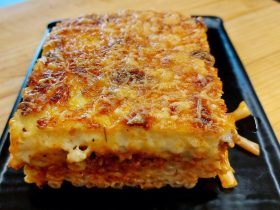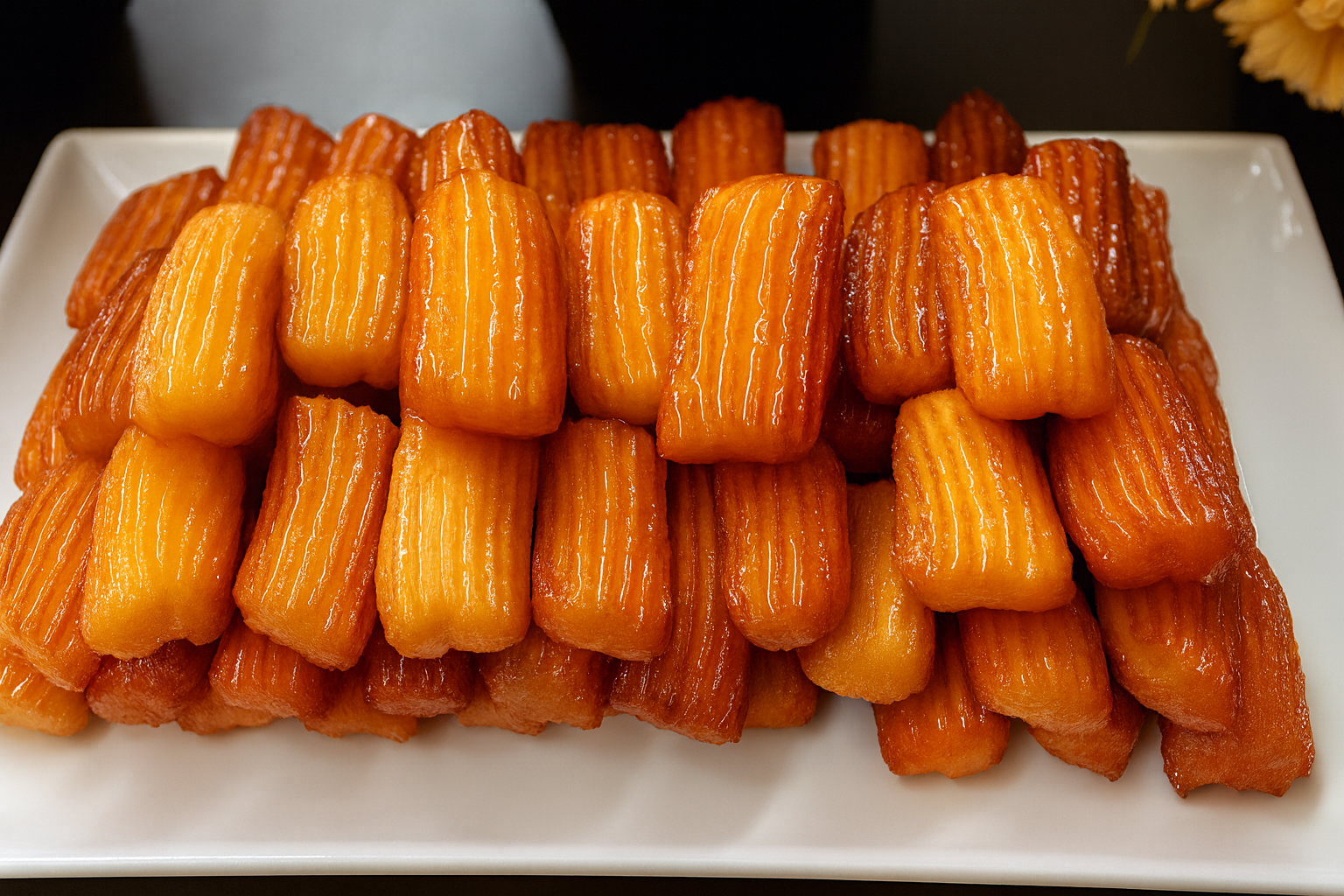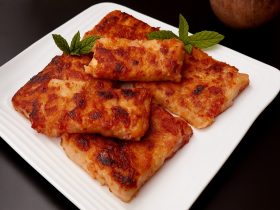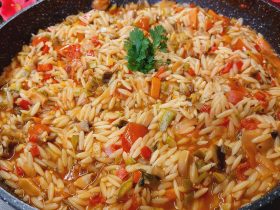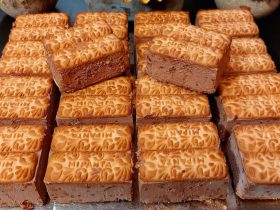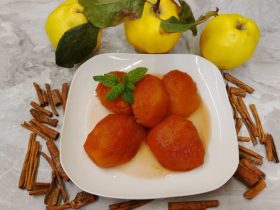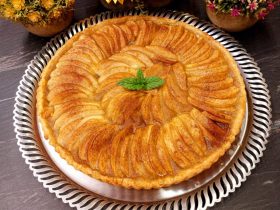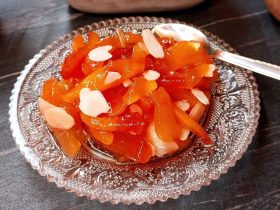Tulumbakia are one of the most beloved traditional Greek desserts — golden, crispy fritters on the outside, soft on the inside, and soaked in sweet syrup. Made with a simple choux-like dough, fried until perfectly golden, and then dipped in cold syrup, these bite-sized delights are a true indulgence. Whether you serve them after a family meal, at celebrations, or as a sweet treat with coffee, these little syrupy treasures are always a crowd-pleaser.
What Are Tulumbakia?
Tulumbakia (greek syrup-soaked churros) are a traditional Greek dessert, similar to churros but with a unique syrup-soaked twist. The dough is close to a choux pastry, fried until crunchy and then dunked in cold syrup so each bite is crispy on the outside and juicy on the inside.
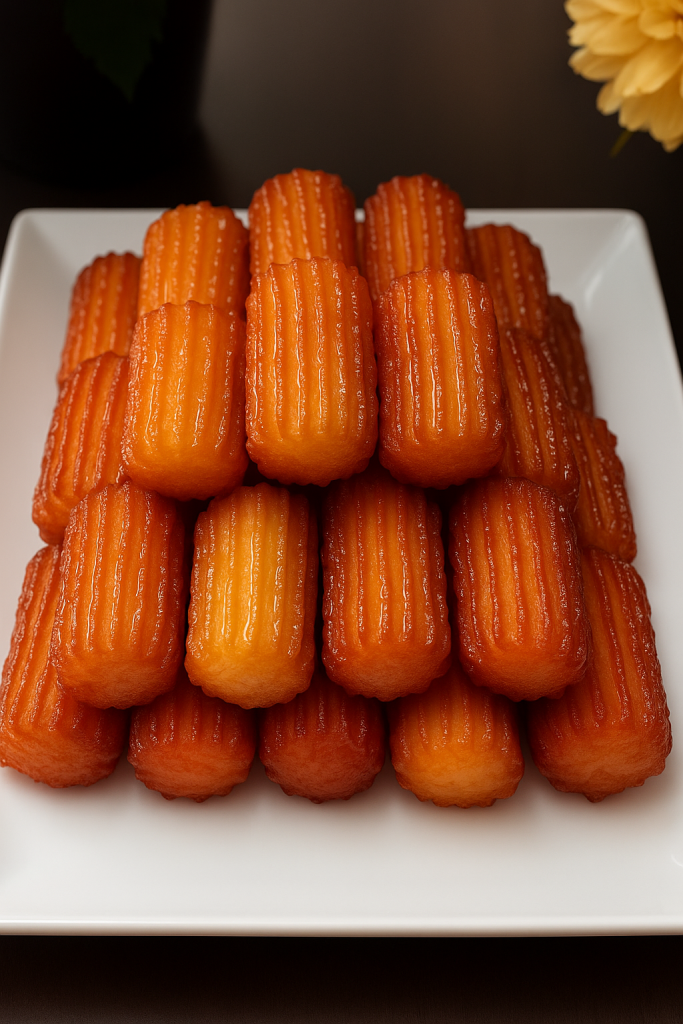
Tips for Perfect Tulumbakia
- Cold Syrup + Hot Fritters: Always dip them while hot into cold syrup for the perfect texture.
- Low Heat Frying: The oil should be warm, not too hot, so the fritters cook evenly inside and out.
- Keep Stirring: Move them gently in the oil to achieve even golden color.
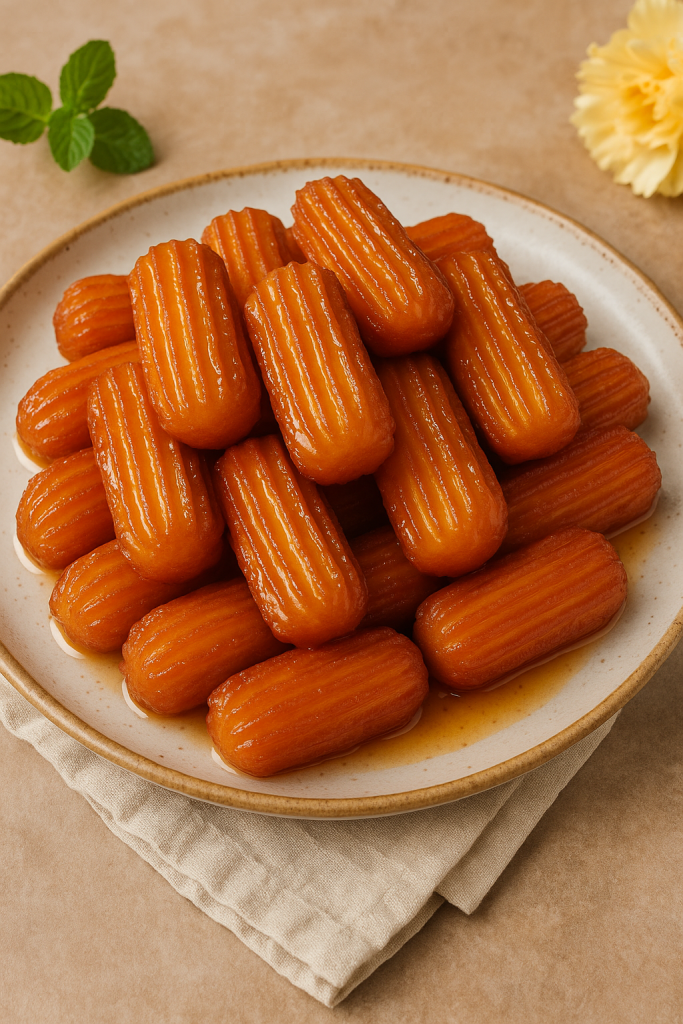
Serving Suggestions
These golden bites are delicious as they are, but you can also:
- Sprinkle with a little cinnamon for extra aroma.
- Serve with whipped cream or a scoop of ice cream.
- Pair with strong Greek coffee for the ultimate experience.
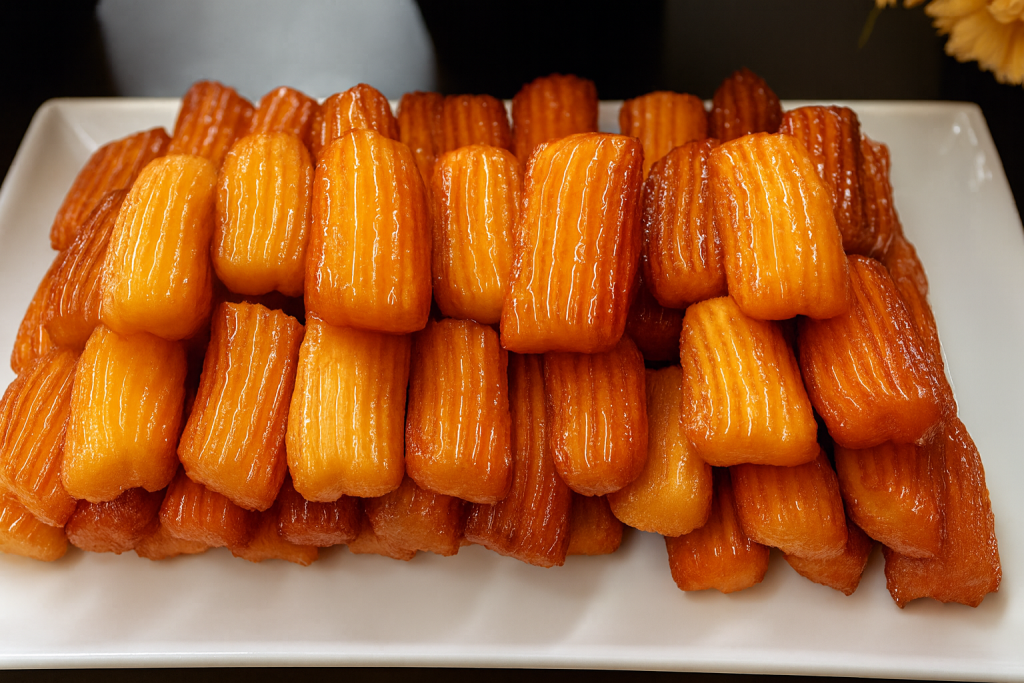
This crispy golden tulumbakia recipe is proof that simple ingredients can create the most indulgent desserts. Sweet, syrupy, and completely irresistible, they’re a must-try for anyone who loves traditional Greek sweets.
Related Recipes You May Enjoy
- Greek Orange Syrup Cake (Portokalopita) Without Phyllo
- Greek Samali Syrup Cake with Mastiha – Traditional Semolina Dessert Recipe
- Skillet Apple Cake: Greek-Style Apple Pie
Nutrition Facts
40 servings per container
- Amount Per ServingCalories60
- % Daily Value *
- Total Fat
3g
4%
- Saturated Fat 1g 5%
- Sodium 15mg 1%
- Total Carbohydrate
8g
3%
- Total Sugars 5g
- Protein 1g 2%
* The % Daily Value tells you how much a nutrient in a serving of food contributes to a daily diet. 2,000 calories a day is used for general nutrition advice.
